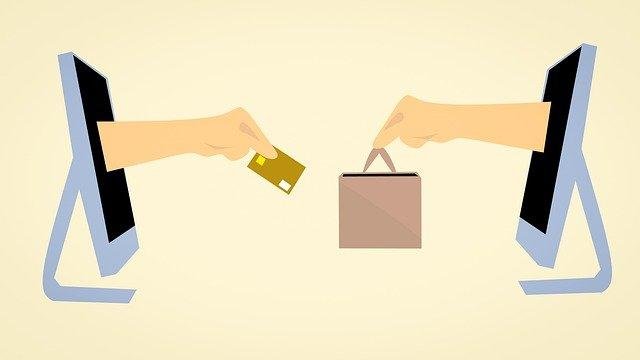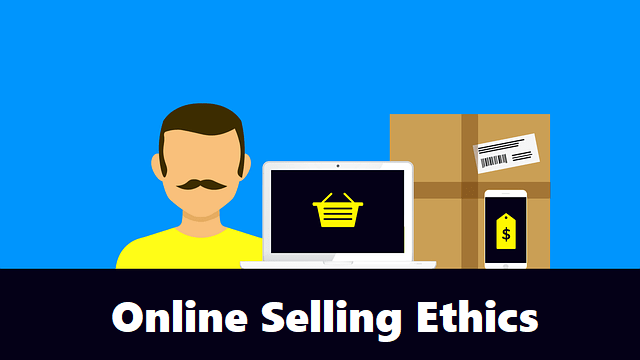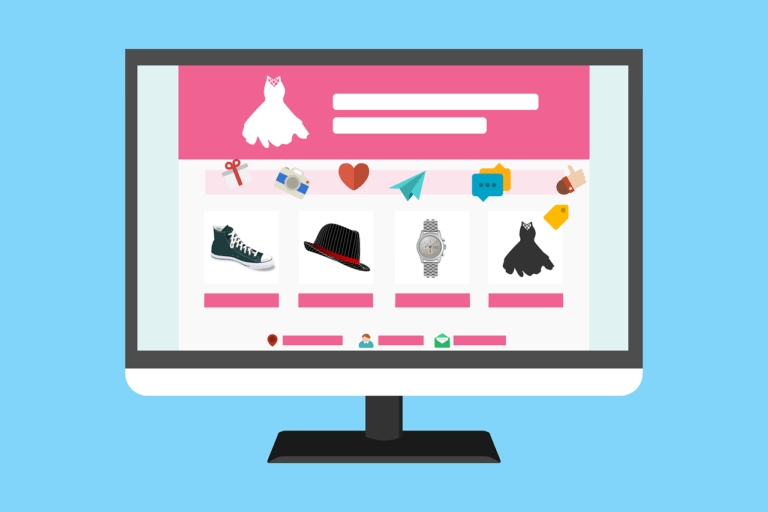Looking to start selling online? Make sure you know the online selling ethics to avoid getting scammed!
Why Do Online Sellers Have to Follow Ethics?
This post revolves around online selling ethics. Just because you’re not face-to-face with your customer doesn’t mean you can cut corners or be less than truthful about what you’re selling. In fact, online sellers must adhere to a higher standard of ethics, since their customers are trusting them with their personal information and hard-earned money.
What are the main principles of online selling ethics?
As the world increasingly moves online, so too do many businesses. This can be a great way to reach a larger audience and boost sales, but it’s important that online sellers adhere to certain principles in order to maintain a good reputation.
Don’t be a Scammer
Be honest in your listings. If there are any defects with the item, make sure to list them. Secondly, price the item fairly. Do not overcharge or undercharge for what the item is worth. Lastly, ship items promptly and safely. Once an item is sold, it is the seller’s responsibility to get it to the buyer in a timely and secure manner.
By following these simple guidelines, online sellers can help create a positive and trustworthy environment for buying and selling goods. By being honest and fair, sellers set the standard for others to follow and build a community of respect around online transactions.
Don’t Be Dishonest
The world of online selling is fraught with opportunities for dishonesty. From inflating shipping costs to listing items as “new” when they’re really used, there are many ways that sellers can take advantage of buyers. However, being dishonest is not only unethical, it’s also bad for business. Here are some ethical practices that all online sellers should follow:
Be upfront about shipping costs. When a buyer sees an item they like, the last thing they want is to be surprised by high shipping fees. Be upfront about your shipping costs from the start, so buyers can decide whether or not they’re willing to pay them.
Don’t list items as “new” if they’re not. This is misleading and will only anger buyers when they realize they’ve been deceived. If an item is used, list it as such.
When it comes to online selling, there are a few ethical practices that sellers should follow in order to ensure they are conducting business in an ethical manner. Online sellers should always follow the law. This means understanding and obeying all applicable laws and regulations, as well as ensuring that their products and services comply with these laws.
Follow the Law!
Online sellers should make sure they are fair and honest in their dealings with customers, suppliers, and other business partners. This includes being transparent about pricing, terms of sale, and delivery timescales.
Online sellers should respect the intellectual property rights of others, including not infringing on copyrights or trademarks. By following these ethical practices, online sellers can help create a fair and trustworthy marketplace for everyone involved.

Protect Your Customers’ Information
As the number of online shoppers grows, so does the risk of identity theft and other cybercrimes. To protect your customers’ information, follow these ethical practices for online sellers:
1. Keep your customer’s information confidential. This means not sharing it with anyone outside of your company unless required by law.
2. Use strong security measures to protect your customer’s information from hackers and other unauthorized access. This includes using encryption, firewalls, and password protection. You should regularly review your security measures to make sure your databases are protected from hackers and data breaches.
3. Only collect the information that you need. Don’t ask for more information than you need, and only use it for the purpose that you state.
4. Be transparent about how you use customers’ information. Let your customers know what information you collect, why you collect it, and how it will be used.
5. Be clear about what you’ll do with customer information when they are no longer your customers. You should also make it easy for them to withdraw their consent and delete their information if they so choose.

What Should Companies Do in Response to the GDPR?
The General Data Protection Regulation, or GDPR, is a set of regulations that member states of the European Union must implement in order to protect the privacy of digital data.
As the world becomes increasingly digitized, companies must take measures to protect the data of their customers and employees. The GDPR sets out strict rules for how companies must handle data, and violators can be fined up to 4% of their global annual revenue.
In response to the GDPR, companies should take steps to ensure that they are in compliance with the regulation. They should first assess what type of data they are collecting and why they are collecting it. They should then put in place measures to protect that data, such as encryption and password protection. Finally, they should develop a plan for how they will respond in the event of a data breach.
Ship Items Promptly and as Described
In order to be an ethical online seller, it is important to ship items promptly and as described. Failing to do so can result in negative feedback and a loss of customers.
When an item is sold online, the customer trusts the seller to send the item as described. If the item is not as described, the customer may feel cheated and leave negative feedback. In some cases, the customer may even file a claim with the company or site through which the transaction was made.

What are the consequences of not following ethical practices?
There are a few consequences that can happen if an online seller does not follow ethical practices. One is that they could get suspended or banned from the site they are selling on. Another is that they could get negative feedback from buyers, which could lead to fewer sales. Finally, if they are caught breaking the law, they could face legal penalties, including fines or jail time.
Conclusion
It is important to always follow a set of ethical guidelines. Online sellers should always be professional in their interactions with customers. This means maintaining a polite and helpful attitude at all times and resolving any issues in a timely and efficient manner. By following these simple rules, online sellers can ensure that they maintain a successful business.







